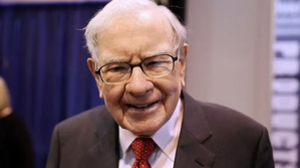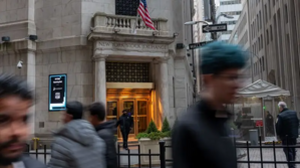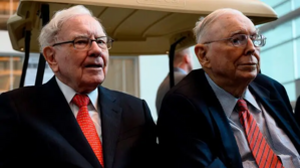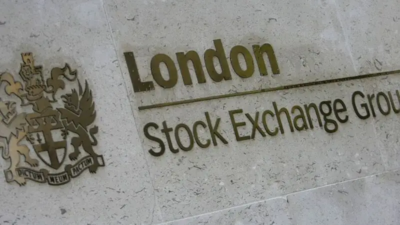What stalled this year’s seemingly infallible stock market rally
A version of this story first appeared in CNN Business’ Before the Bell newsletter. Not a subscriber? You can sign up right here. You can listen to an audio version of the newsletter by clicking the same link.
The 2024 gangbusters rally in stocks has skidded to a screeching halt.
The S&P 500 index has fallen 4.6% so far in April, and all three major US indexes are on track for their first negative month since last October. The Dow Jones Industrial Average is on the brink of wiping out its gains since the start of 2024 — it’s up just 0.2% — while the S&P 500 is up 5.1% and the Nasdaq Composite has added 3.9%.
CNN’s Fear & Greed Index, which measures seven barometers of market sentiment, closed Thursday at a “fear” reading, down from “greed” a month ago.
Behind the turmoil? Strong economic data and sticky inflation have led Wall Street to push back its expectations for when the Federal Reserve will begin cutting interest rates. A boost to oil prices from rising tension in the Middle East hasn’t helped.
Data released this month showed that inflation remains stubbornly above the Fed’s 2% target. Employers added a stunning 303,000 jobs in March, blowing past expectations. Spending at US retailers rose for the second consecutive month, highlighting the US consumers’ resilience even with rates perched at a 23-year high.
Then, Fed Chair Jerome Powell said on Tuesday that rate cuts will likely come later than expected and that the central bank will need to see more signs of moderating inflation before pivoting.
Traders now project that the Fed will begin easing rates in July or September, according to the CME FedWatch Tool. Investors earlier this year expected as many as six rate cuts in 2024, starting in March.
“We believe investors should prepare for a higher-for-longer regime when it comes to both inflation and interest rates,” wrote Michael Landsberg, chief Investment officer at Landsberg Bennett Private Wealth Management, in a Thursday note.
The International Monetary Fund on Tuesday upgraded its forecast for American economic growth this year but warned that inflation will be tough to tamp down. While the US will be a key driver of global growth, its economy is “overheated,” the organization said.
“This calls for a cautious and gradual approach to (monetary) easing by the Federal Reserve,” IMF chief economist Pierre-Olivier Gourinchas wrote in a blog post accompanying the agency’s outlook.
Bond yields have spiked this week as investors wager that rates will remain elevated for longer than expected. The 10-year US Treasury yield was trading at 4.65% at 3 pm ET on Thursday, according to Tradeweb.
Investors had hoped that corporate earnings would help revive the stalled rally, but a strong start to the season hasn’t been enough to excite investors. Roughly 13% of S&P 500 companies have reported quarterly results so far. Blended first-quarter earnings growth, which combines estimates with actual results, is roughly 0.9%, according to FactSet data. Yet, stocks have continued to falter.
Adding to Wall Street’s woes are brewing tensions in the Middle East. Iran launched airstrikes at Israel over the weekend in retaliation for a suspected Israeli strike on its embassy compound in Syria earlier this month. Israel carried out a strike inside Iran in response, a US official told CNN Friday. Israel has not commented, while Iranian officials and state-aligned media have so far sought to play down the incident.
Oil prices initially spiked higher on reports of the attack on Iran but reversed those gains as the limited nature of the action became apparent.
Brent crude futures, the international benchmark, were down 0.4% at $86.80 per barrel by 6.45 am ET, having earlier spiked more than 3%. US crude futures slipped 0.3% to trade at $82.50, also reversing earlier gains. Both contracts have fallen so far this month but are still up about 15% since the start of the year.
Investors are searching for safer havens over stocks. Gold futures have risen this month as traders seek protection from geopolitical turmoil and persistent inflation. The most actively-traded gold futures contract settled at $2382.30 a troy ounce on Thursday.
US mortgage rates surge past 7%, reaching highest level since November
Mortgage rates soared this week, breaching the key 7% threshold and extending America’s home affordability crisis, reports my colleague Bryan Mena.
The 30-year fixed-rate mortgage averaged 7.10% in the week ending April 18, up from 6.88% the previous week, according to Freddie Mac data released Thursday. A year ago, the average 30-year fixed-rate was 6.39%.
Breaching 7% represents a psychological threshold that hadn’t yet been crossed this year.
Mortgage rates are climbing based on expectations that the Federal Reserve won’t cut interest rates anytime soon. The Fed doesn’t directly set mortgage rates, but its actions do influence them, and persistently hot inflation readings are keeping the Fed on hold.
“As rates trend higher, potential homebuyers are deciding whether to buy before rates rise even more or hold off in hopes of decreases later in the year.” said Sam Khater, Freddie Mac’s chief economist, in a statement.
If inflation stalls any further, or even worsens, mortgage rates could climb higher this year.
Read more here.
Apple plans to spend more in Vietnam as it looks beyond China
Apple is planning to buy more components from Vietnam, underscoring a trend among global tech firms to look beyond China to secure their supply chains, cut costs and open up new markets, reports my colleague Anna Cooban.
CEO Tim Cook made the pledge in a meeting with Vietnamese Prime Minister Pham Minh Chinh in Hanoi Tuesday, according to a statement by Vietnam’s government.
Apple (AAPL) has already spent almost $16 billion through its supply chain in the country since 2019, the government quoted Cook as saying. And the company has created more than 200,000 jobs in Vietnam, it added.
According to the statement, Cook said Apple “stands ready … to enhance cooperation and Investment activities” in the Southeast Asian country.
His visit highlights Vietnam’s growing importance to global companies looking for alternatives to China as trade tensions between Beijing and the West have escalated in recent years.
Read more here.
Maybe You Like
London Stock Exchange urged to do more to hold onto retail traders
The UK stock market needs to improve investor communication and engagement in order to retain its individual traders, according to a report from online trade and investor provider CMC Markets. ADVERTISEMENTUK retail investors are increasingly...
Hargreaves Lansdown rejects private equity takeover bid
The UK investment platform says the offer from a group including the Abu Dhabi Investment Authority undervalues the firm. ADVERTISEMENTHargreaves Lansdown has rebuffed a takeover proposal worth £4.67 billion (€5.48 billion) made...
Ferrovial set to offload UK regional airports amid Heathrow deal uncertainty
Ferrovial is planning to sell its stake in three UK regional airports amid difficulties in finalising its £2.4bn sale of a 25% stake in Heathrow. ADVERTISEMENTSpanish infrastructure company Ferrovial is reportedly putting up for sale...



























